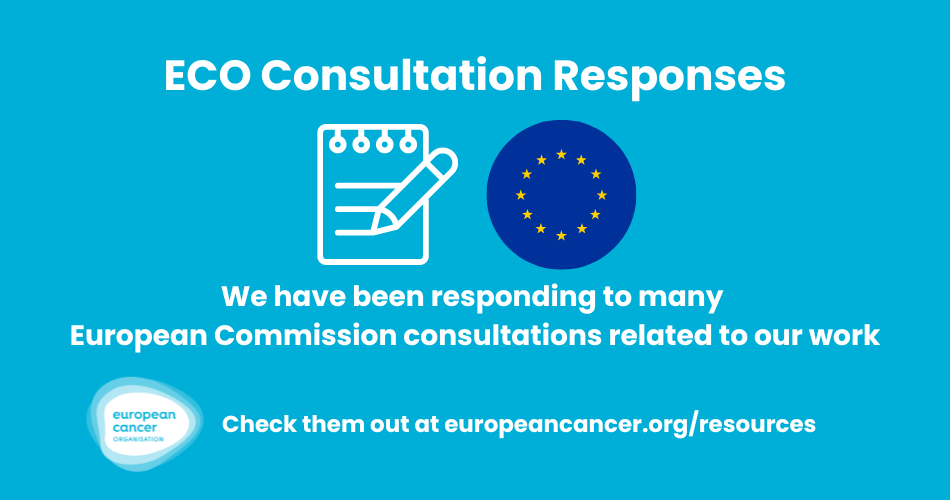ECO Responds to the WHO Consultation on Fiscal Policies to Promote Healthy Diets
The European Cancer Organisation (ECO) responded to WHO feedback on its latest guidance to international governments about Fiscal Policies to Promote Healthy Diets. The guidelines that WHO has drafted for all national governments recommend:
- fiscal policies to tax sugar-sweetened beverages,
- the taxation of foods inconsistent with a healthy diet, and
- subsidising of foods that contribute to a healthy diet.
With the support of our Prevention, Early Detection and Screening Network we have had opportunity to consider the proposals and provided the below key areas of feedback for consideration. ECO:
- recommends, and will support, the future adoption of the WHO guidelines by all European countries, as part of a shared commitment to address the burden of Non Communicable Disease.
- emphasises that robust and agreed systems of nutrient profiles must be the backbone of the design and implementation of the recommended guidelines. A solid application of nutrient profiling is a fundamental underpinning to ensure the success of fiscal policies on unhealthy food and drink products. This in turn, further underlines the need to promote policy action that can lead to greater accessibility of healthy diets to all socio-economic groups, such as via tax subsidy;
- Promotes the need for tax rates on unhealthy foods and beverages to be sufficiently high in order to achieve a real incentive for consumers not to consume these products, and at the same time promote healthy diets that are accessible to all socio-economic groups;
- encourages ongoing studies and research on the comparable effectiveness of the different policy options described in the draft WHO recommendations, especially after their implementation;
The European Cancer Organisation suggests that the final guidelines include recommendations about the best use of revenue raised via taxation on sugar sweetened beverages and energy-dense, nutrient-poor foods. For example, it could be suggested that a proportion of the income received from such taxes be invested to supporting education programmes about healthy diets, in school and community settings.
In respect to future work by the WHO in the area of healthy diets and improved public health, we express support for the overall need by Governments to also create, promote and implement, comprehensive strategies to obesity that help, for example, in the provision of long-term management of obesity throughout the lifespan.
Our full response is available here.


